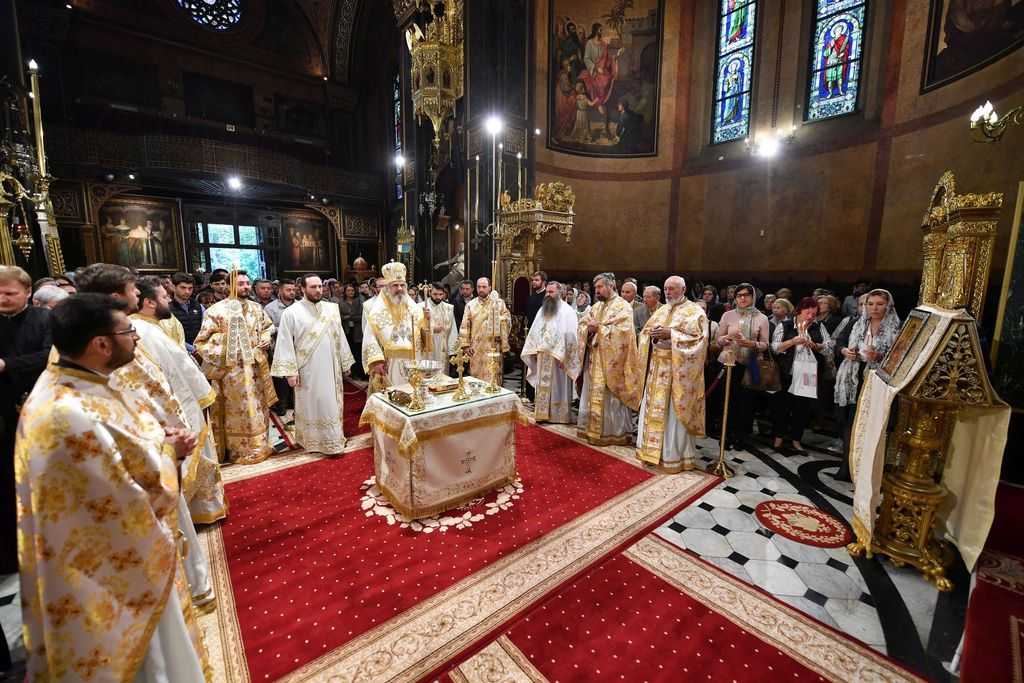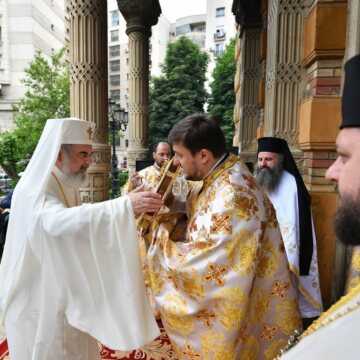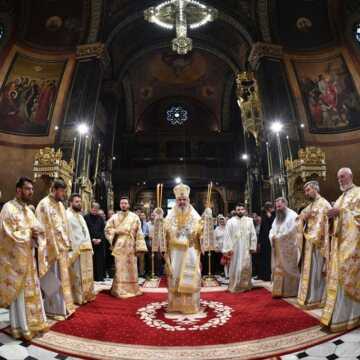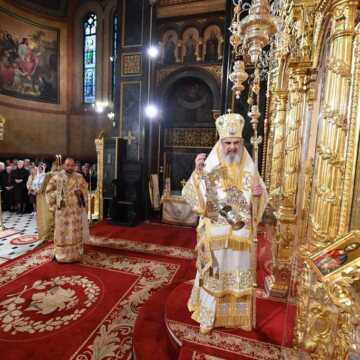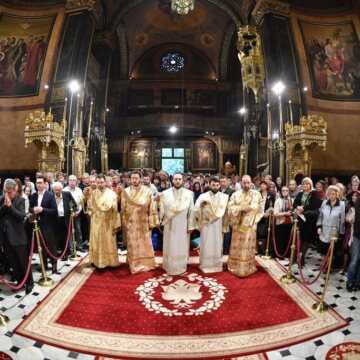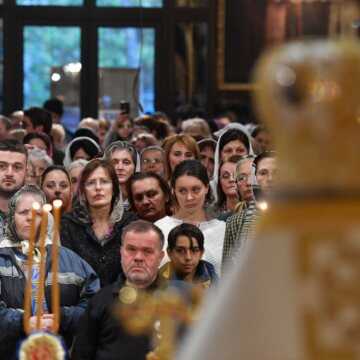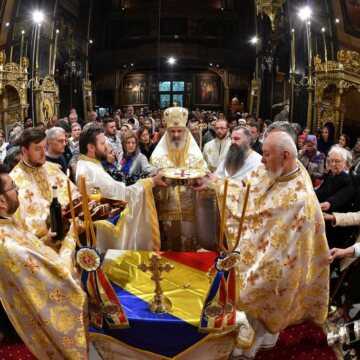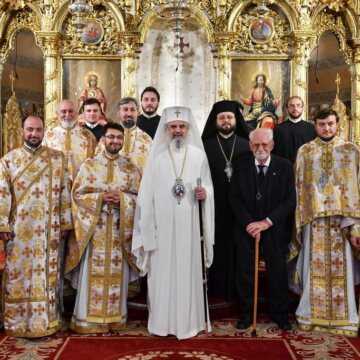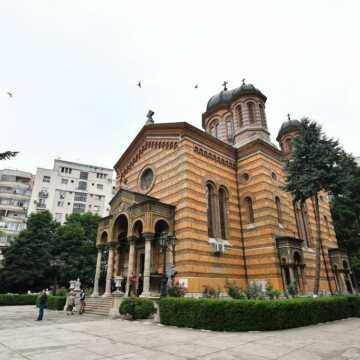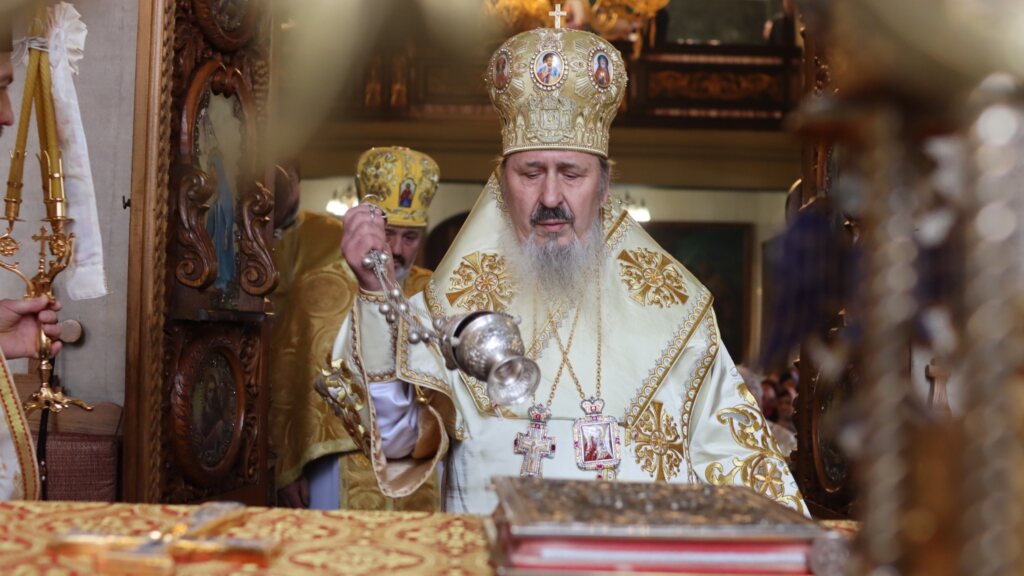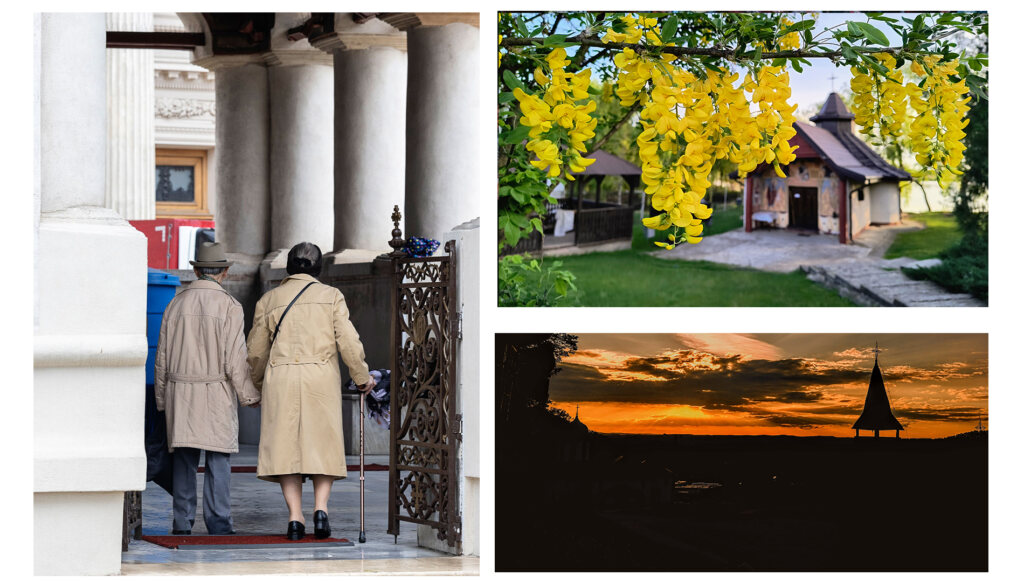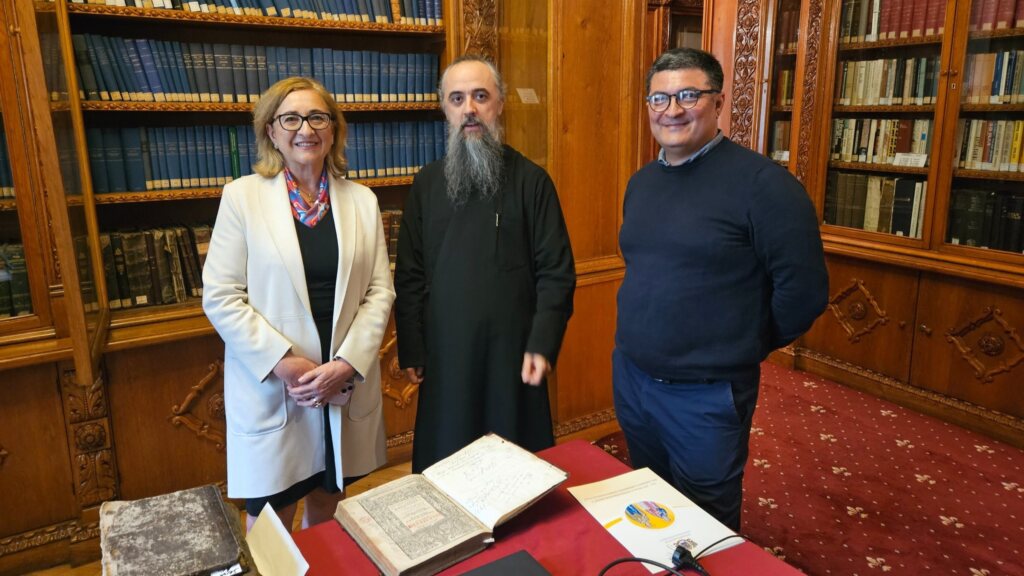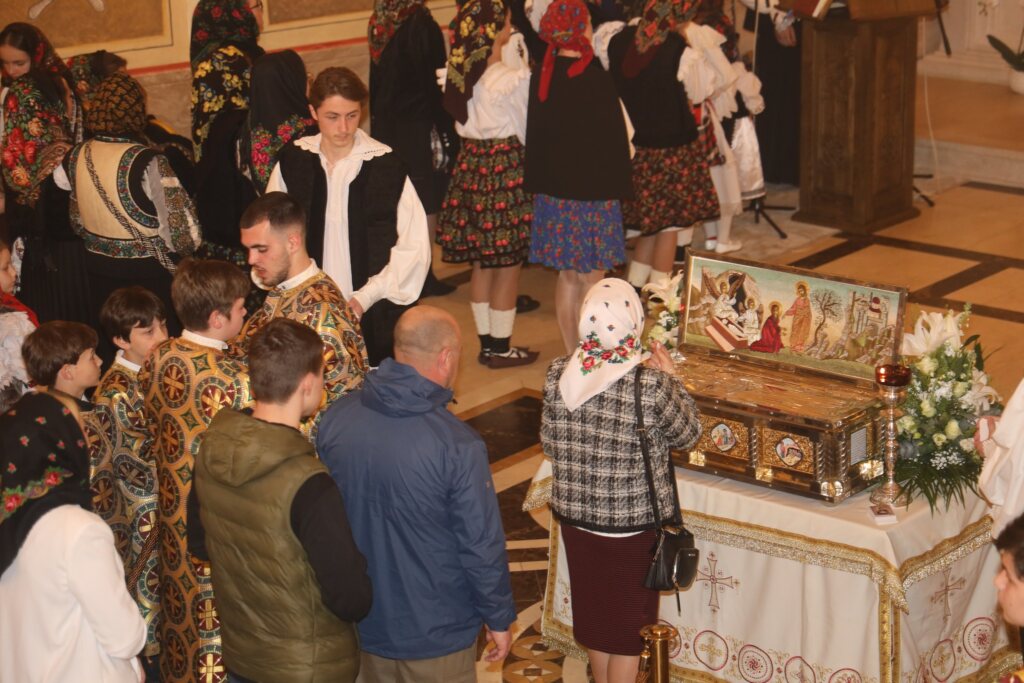His Beatitude Daniel, Patriarch of the Romanian Orthodox Church, celebrated Thursday the Divine Liturgy at Lady Balasa Church in Bucharest on its patronal feast.
Patriarch Daniel offered his reflections on the Feast of the Ascension of the Lord stressing its importance in the life of the believers and referred to the Heroes’ Commemoration Day.
The Ascension of the Lord into Heaven is also man’s ascension into the glory of the Most Holy Trinity, he said. The Lord came down from Heaven, and was incarnate of the Holy Spirit and the Virgin Mary, and became man. He carried out his salvific activity on earth; He passed through death, through resurrection and ascended into glory.
Reflecting on the ten appearances of the Saviour after His resurrection from the dead, the Patriarch said that they are a proof that He does not live any longer an earthly life.
Christ the Lord appears and disappears in order to teach His disciples that He lives a different life: a deathless life, undetermined by limited nature, mater or space. His appearances after the Resurrection teach us that during our earthly life we ought to seek the heavenly, everlasting life, the Patriarch added.
His Beatitude explained that the Saviour sent His Holy Spirit into the world as a continuation of His earthly ministry.
Christ is ascended into heaven, but he promises that the Holy Spirit would be another Comforter for His disciples. The Saviour Jesus Christ wants to be closer to us, not by standing in front of us, but through the real, mystical presence of the Holy Spirit in us. He wants to be present in our souls, minds and hearts. He wants to become the Life of our life, the patriarch reflected May 25.
His Beatitude went on to recall the reason of choosing the religious feast of the Ascension of the Lord as Remembrance Day of all Romanian Heroes from all times and places, who sacrificed themselves on battlefields, in camps and in prisons for the defense of our homeland and the ancestral Orthodox faith.
The Patriarch explained that the first Romanian Patriarch Miron recommended in 1920 to the Parliament of Romania and to King Ferdinand I that this feast day become an occasion to commemorate national heroes. The commemoration day was held until 1948, when the communist regime interrupted it and moved it on May 9.
After the 1990 revolution, the remembrance of heroes on the fortieth day after Easter was resumed, being established as national church feast by the Holy Synod of the Romanian Orthodox Church in 1991 and 2001, and then the Romanian Parliament declared it a national holiday of the Romanian people.
To remember our heroes in the Church means to honour their sacrificial love, the patriarch noted.
Romanian heroes are honoured because they manifested a sacrificial love. They have demonstrated that their love for the country and the people was greater than the fear of death, he said.
The remembrance of heroes is a genuine cultural act of the soul. The memorial ritual in general and especially the remembrance of national heroes has given a culture and consciousness of our continuity and communion over time, the Patriarch said in the conclusion of his homily.
At the end of the Divine Liturgy, Patriarch Daniel officiated a memorial service for the Romanian national heroes.
© basilica.ro
